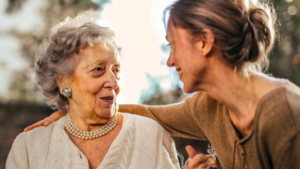
The numbers are in for West Hollywood’s social services contractors, who report to City Hall how many (or few) people to whom they’ve provided assistance midway through the year.
The data reveal accomplishments and shortcomings alike. Healthcare In Action, for example, provided mobile medical, mental health, and substance use treatment services for 159 new, unduplicated patients (142% of goal), completed 300 patient assessments (278% of goal), conducted 455 medical procedures and screenings (135% of goal), and supplied 199 medications (415% of goal). Some vendors — including Being Alive, Disability Community Resource Center (DCRC) and StepUp — failed to meet their goals.
But lost in the numbers are the human stories which provide compelling evidence of the value of WeHo’s social services.
Bet Tzedek’s Eviction Defense and Prevention Program helped an elderly tenant remain in her home after her landlord filed an unfounded Unlawful Detainer for nonpayment of rent, which seemed retaliatory due to her habitability complaints. Bet Tzedek filed a motion for summary judgment, proving the tenant had paid the demanded rent, leading to the landlord dismissing the case.
Bet Tzedek’s WeHo Project assisted a Holocaust survivor in moving to her daughter’s unit in West Hollywood, where the daughter would be her primary caregiver due to the survivor’s declining health. Despite Los Angeles County Development Authority’s (LACDA) rule against renting from relatives, Bet Tzedek secured a portability voucher from another housing authority and submitted a reasonable accommodation request to LACDA. After an initial denial, Bet Tzedek’s appeal was successful, and the request was granted.
The Disability Community Resource Center (DCRC) aided a previously incarcerated community member. The West Hollywood Independent Living Specialist enrolled him in a re-entry employment program with the Department of Rehabilitation and provided clothing vouchers for job interviews. With DCRC’s ongoing support, he is actively pursuing job opportunities and improving his skills.
Jewish Family Service’s Comprehensive Service Center’s CONNECT program pairs older adults with younger volunteers, fostering intergenerational connections to reduce isolation and promote mutual appreciation. Their matches include a 31-year-old restaurant designer with a 90-year-old artist, a 24-year-old rabbinical student with an 87-year-old Holocaust survivor, a 24-year-old film student with a 70-year-old dancer, and a 30-year-old documentary filmmaker with an 84-year-old theater critic.
Healthcare in Action (HIA) supported a young homeless man with schizophrenia and chronic headaches. Despite his erratic behavior, the HIA team persisted, eventually initiating psychiatric treatment with oral medication, transitioning to a six-month long-acting injectable. This led to significant improvement, and he secured vital documents and benefits. Expressing a desire to return to his childhood home in the Midwest, HIA provided funds that enabled him to purchase a one-way ticket. On Christmas Day, his family expressed their gratitude to HIA for reuniting them.
JVS SoCal’s WeHoWorks Program helped a community member transition from a retail career to marketing. After multiple job rejections, the client attended workshops to improve his resume and cover letter and participated in mock interviews. He is now happily employed in a managerial position at an e-commerce company.
The Los Angeles LGBT Center’s Legal Advocacy Project for Survivors provided intake, crisis intervention and ongoing safety planning for a survivor of intimate partner violence. The client received two free legal consultations regarding divorce and custody, was advised on a viable claim for financial support from the abusive ex-partner, and was connected to a specialized attorney.
Pathways operates the West Hollywood Preschool, where students spent the first six months of the program year learning about empathy, winter weather, animal habitats, turn-taking, friendships, and dental health. Mrs. Alicia continues to engage students in gardening, where they care for plants and harvest fresh vegetables like green beans, strawberries, potatoes, sorrel, and flowers.
The TransLatin@ Coalition secured emergency shelter for a nonbinary community member at Ascencia. The Peer Case Manager assisted with legal name and gender marker changes and provided housing referrals. The community member also enrolled in TransLatin@’s Workforce Development program, which covered the costs of licensing and education requirements, leading to employment as a caregiver.

Thank you for putting this out there. Our providers are some of the best. I’m sad that someone had s bad experience. I would request that they come to commission and let us know how they felt they weren’t served well. We listen and truly take information seriously. Thank you @steve Martin for acknowledging our work.
I had a very disappointing experience with Jewish Family Services, particularly with the Teller Training program and its management. The job services at the WeHo Library were also unsatisfactory. Unfortunately, I had negative experiences with both services.
The members of our Human Services Commission are some of the unsung heroes of this story. They put in an incredible amount of time during the budget season, assessing each provider’s compliance with goals and determining if the residents are getting bang for their buck. The Commission and staff work really hard to make sure the City’s Social Services are crafted to meet real community needs and they do a really good job. It is not always perfect but the effort is honest and open.